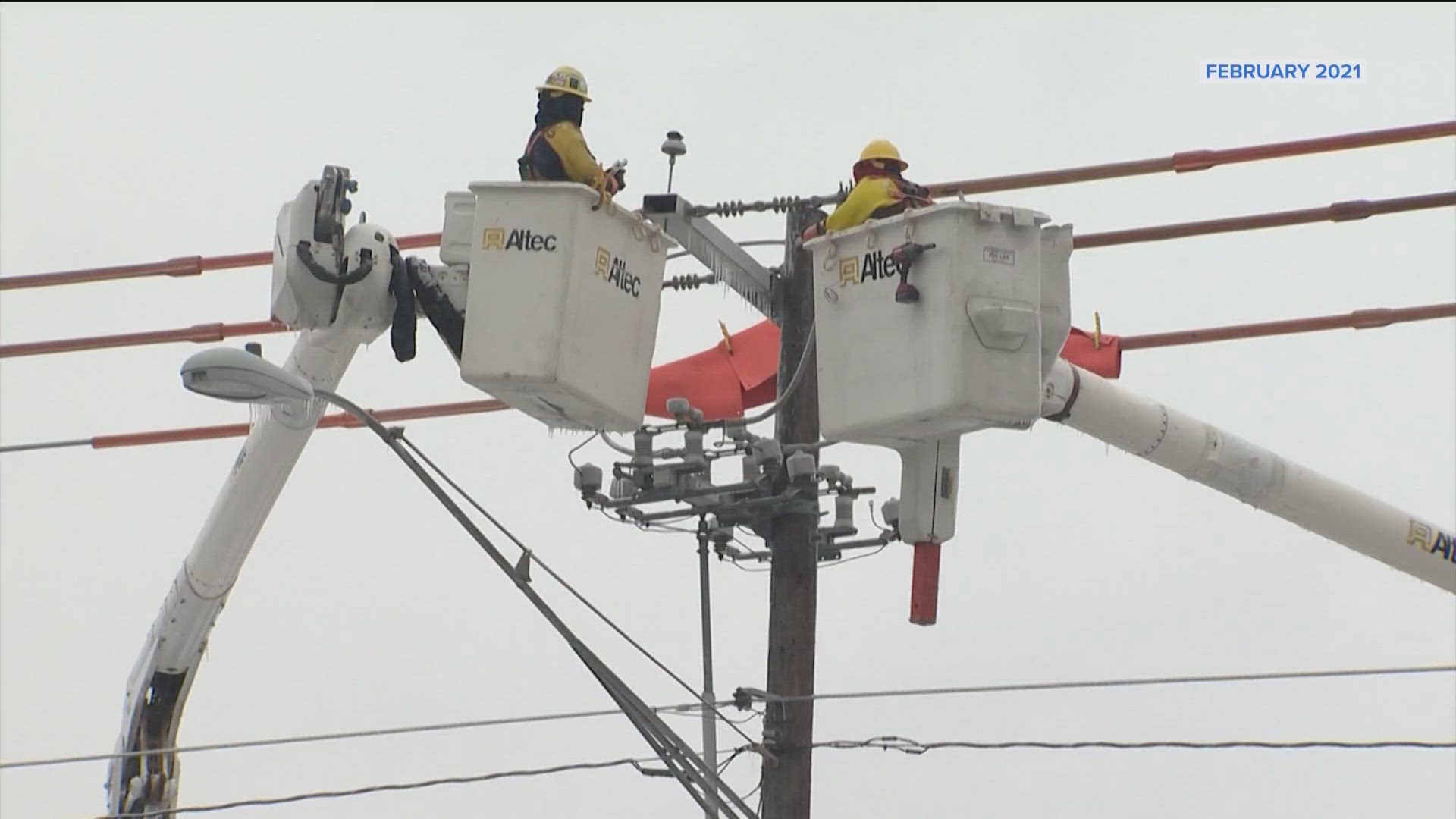AUSTIN, Texas — The Electric Reliability Council of Texas (ERCOT) wrapped up its first-ever Innovation Summit on Tuesday in Austin.
The event at the Hilton Austin Airport hotel brought together grid operators, researchers and companies to share ideas and brainstorm ways to make the state's power grid more reliable as more people and companies continue moving to Texas.
“The digital and clean energy economies are driving electric demand growth in ways that we haven’t seen since the post-World War II expansion,” ERCOT CEO Pablo Vegas said during the summit's opening speech.
Texas broke its power demand a record 10 times in the summer of 2023. In those days, solar and wind were key to meeting the need. One panel on Tuesday focused on renewable energy storage.
Ed Hirs, an Energy Fellow at the University of Houston, told KVUE that battery technology has grown dramatically, but it’s not enough to fulfill the needs of every Texan.
“I think we’re up to 4 gigawatts now, and it’s expanding day by day,” Hirs said. “The challenge is that’s not enough to take care of a grid that needs 71 gigawatts on an average spring day when it’s kind of muggy, like we’re seeing right now.”
Hirs believes the state grid needs new natural gas plants to carry the load in the short term.
Lt. Gov. Dan Patrick invited potential investors from BlackRock to Houston in February. The state is offering low-interest loans to construct new dispatchable energy facilities.
RELATED: Texas Lawmaker files bill that would allow the rest of the country to access Texas’ power grid
Hirs said delivering a return on investment to Wall Street investors is a big challenge in getting new plants built. Also, those natural gas facilities typically take between two to four years to come online.
“ERCOT could very easily implement systemwide demand response programs where they could text you and ask you to opt-out, maybe even pay you some money to opt out of an afternoon,” Hirs said. “California does this, and the consumers opt out voluntarily.”
Hirs also suggested that ERCOT leverage already installed smart meter technology.

